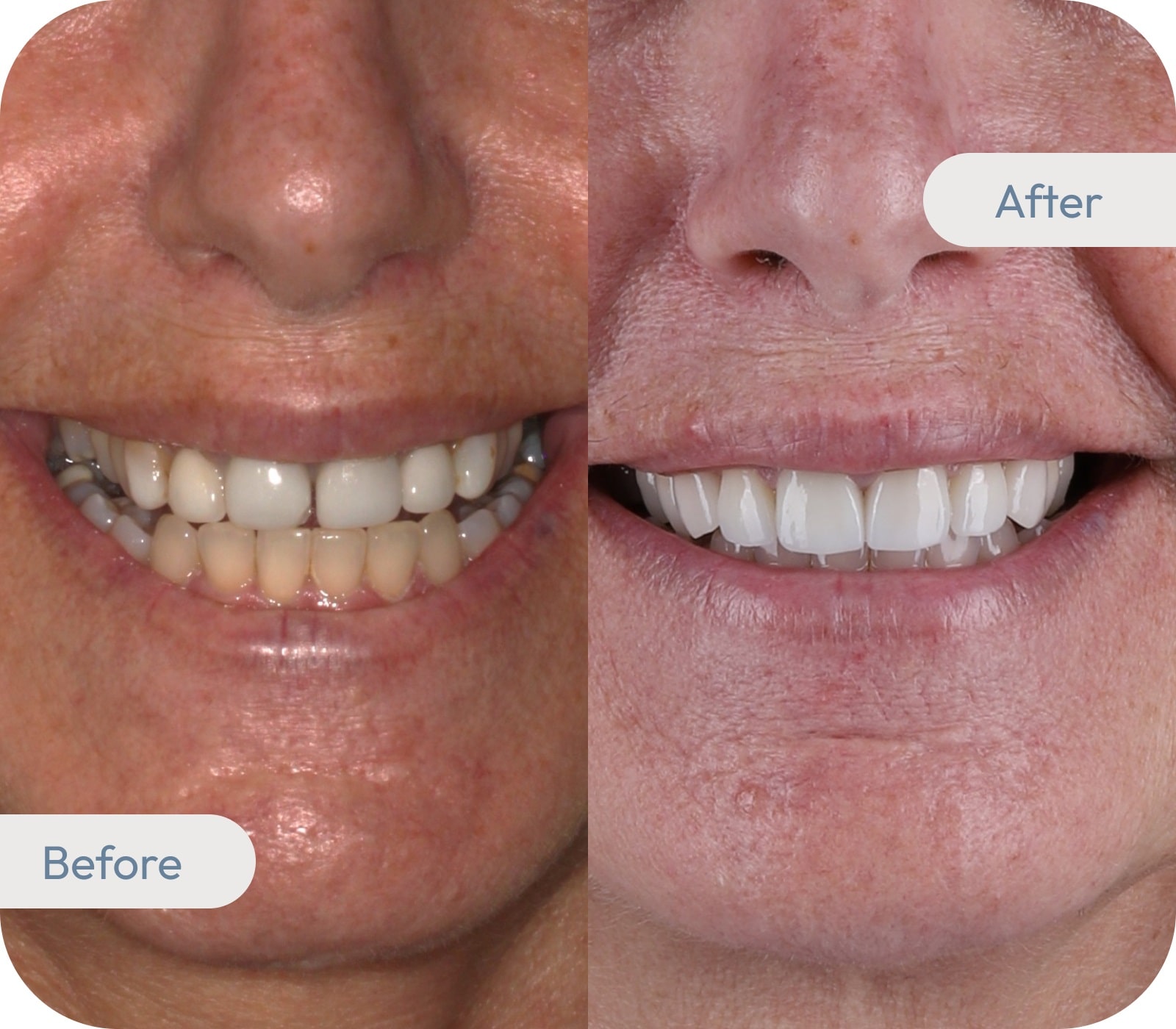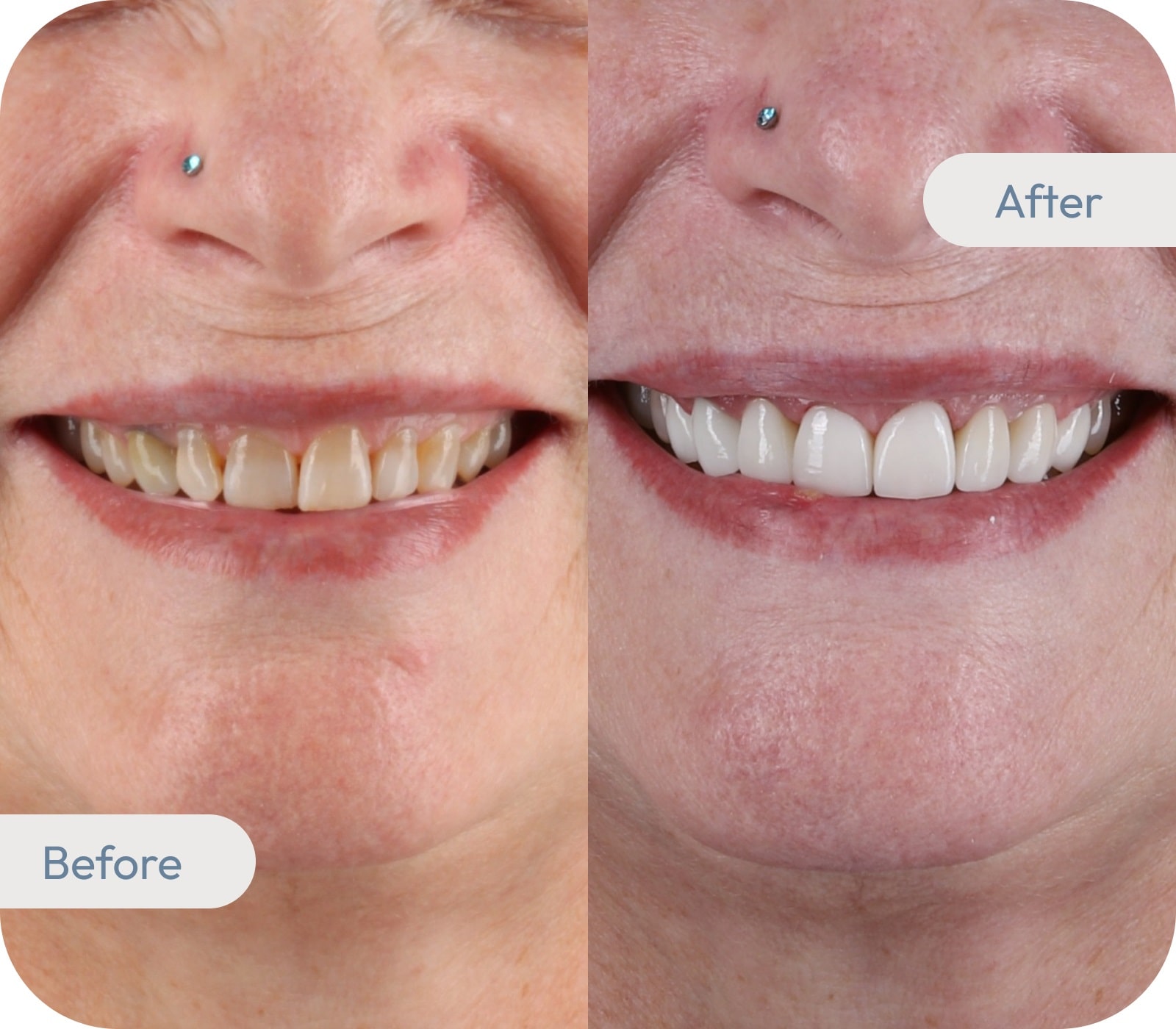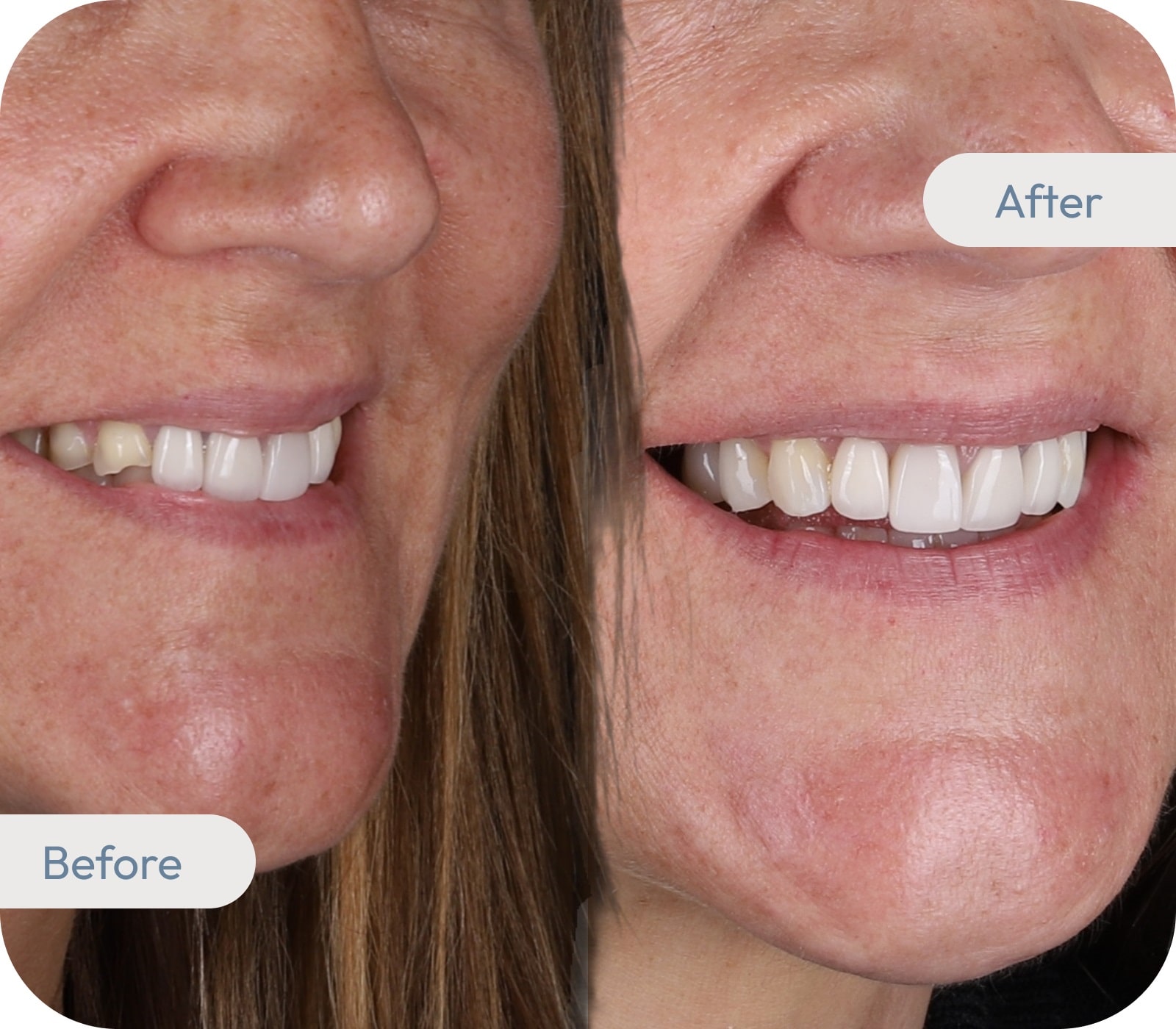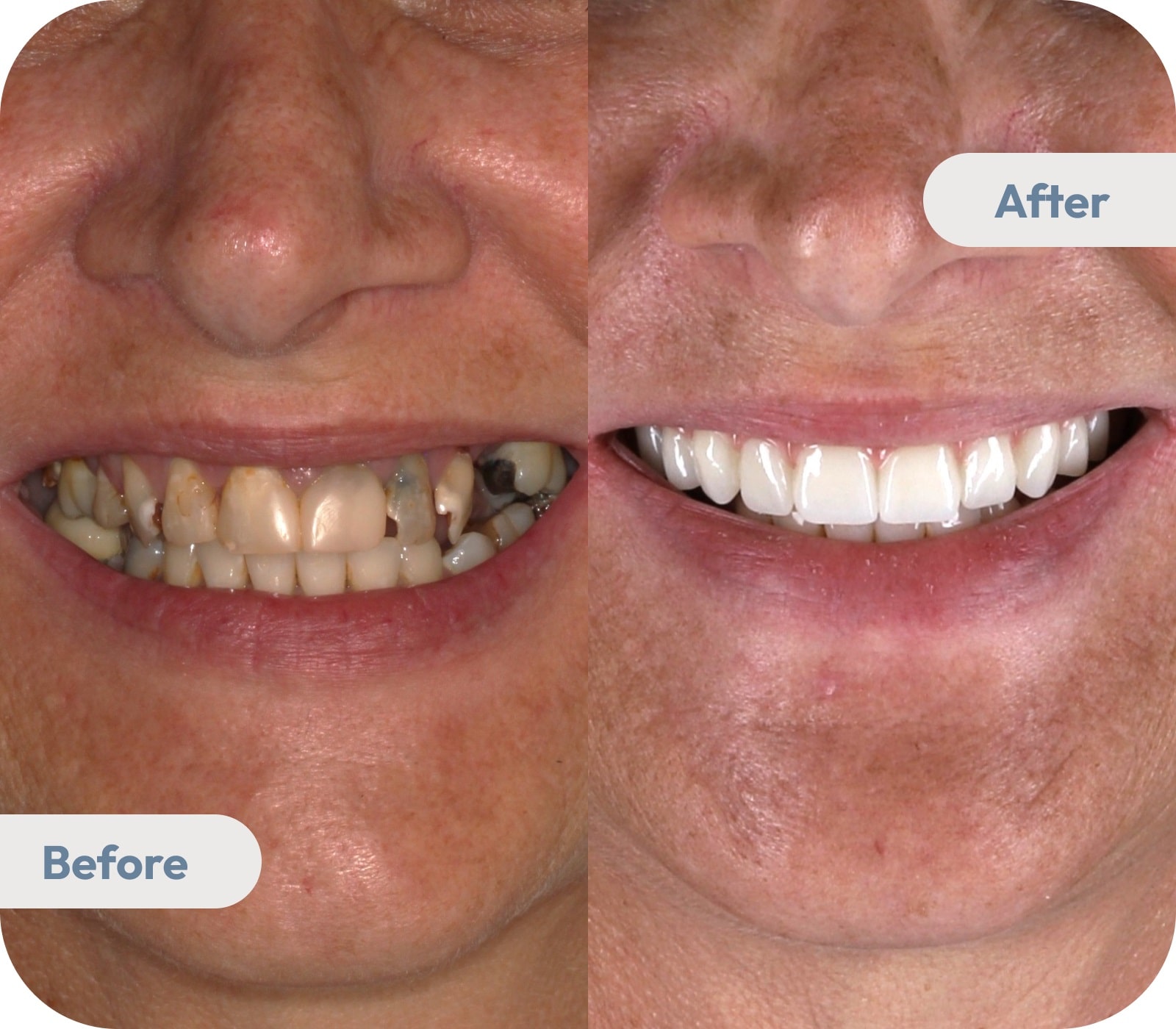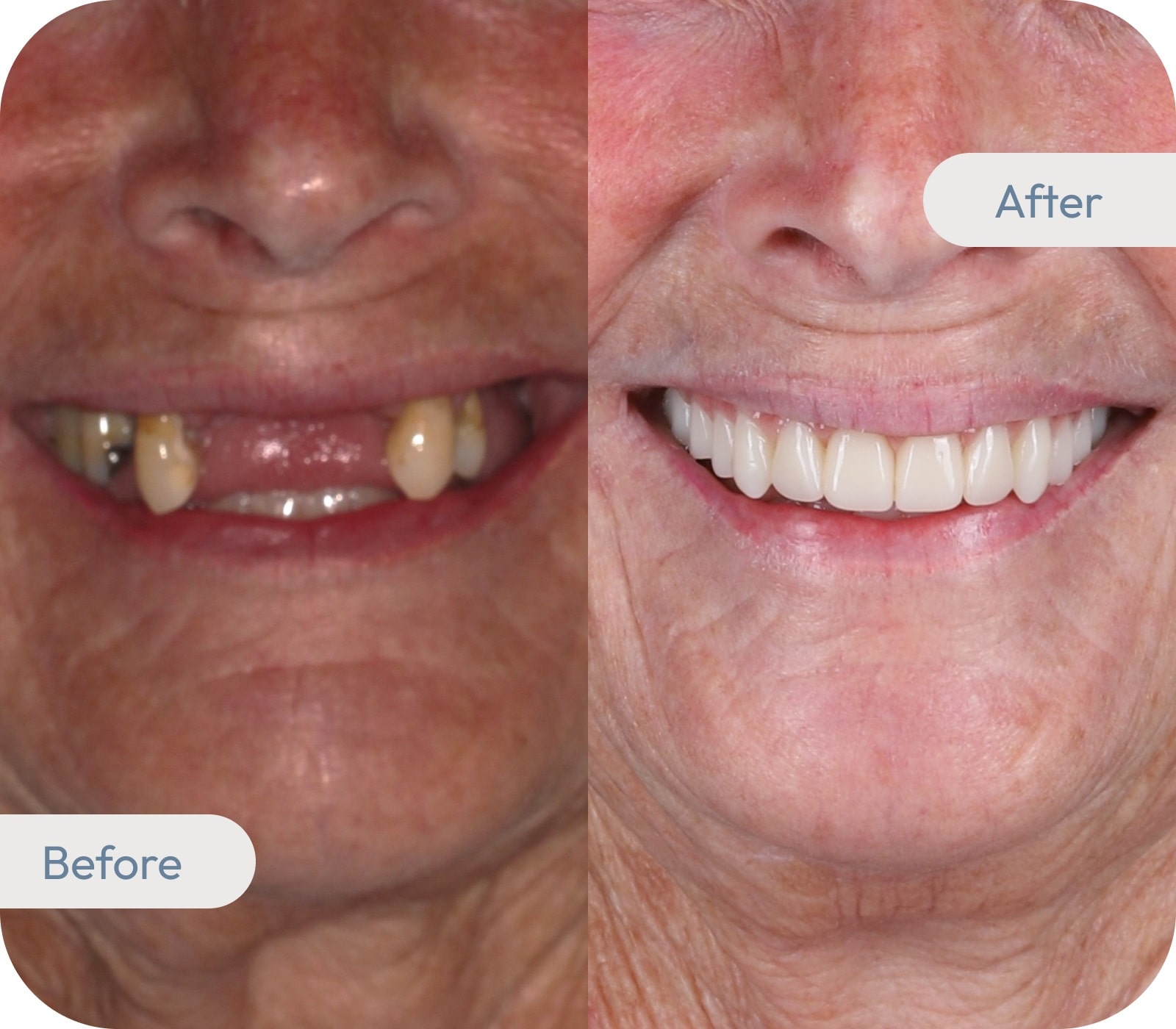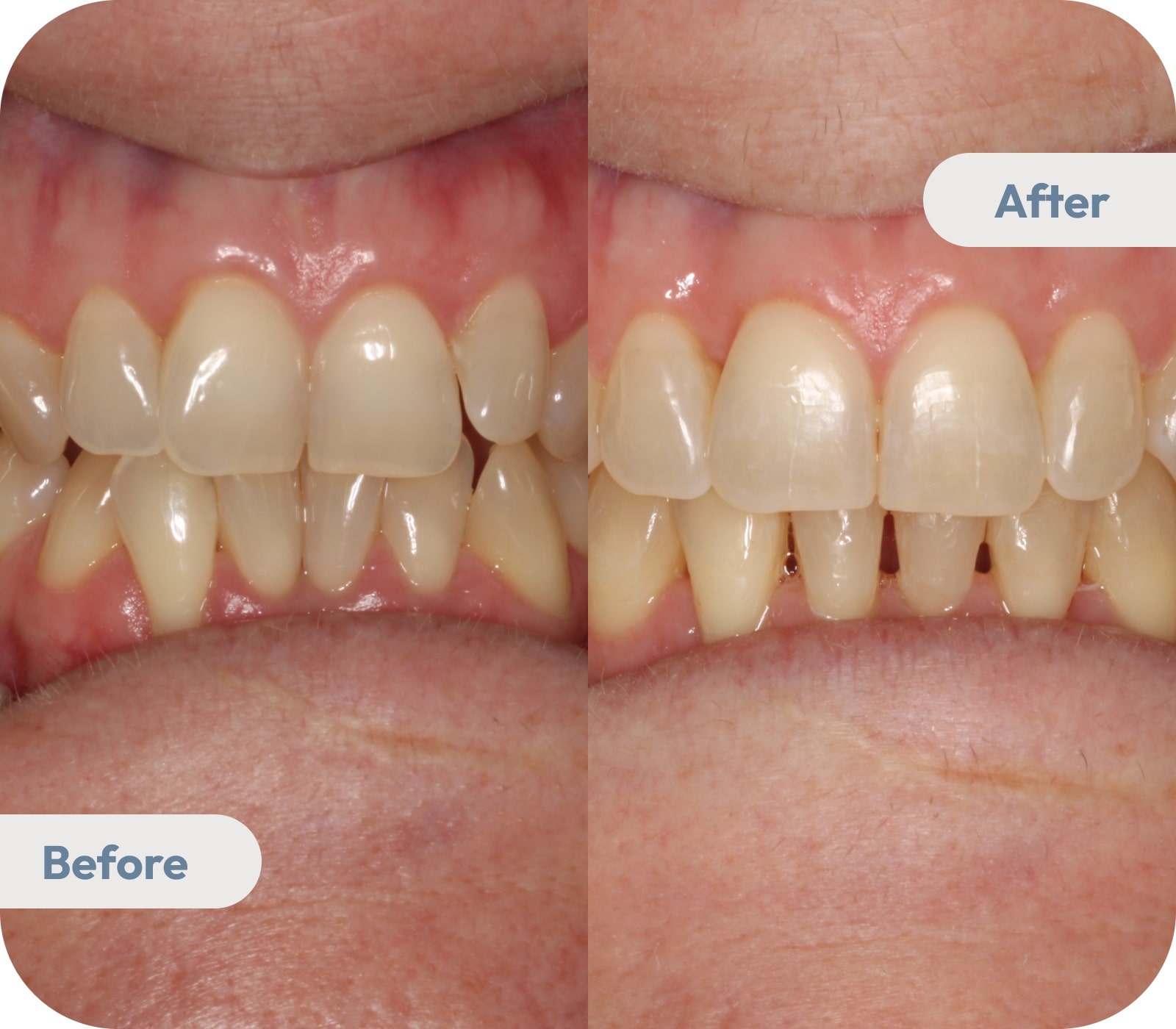Urgent Dental Care in Bunbury
“I Have a Dental Emergency”
—We Can Help
Sudden dental pain or trauma can be stressful, but urgent dental care is available. Our registered dentists provide assessment and treatment to help manage urgent dental issues.
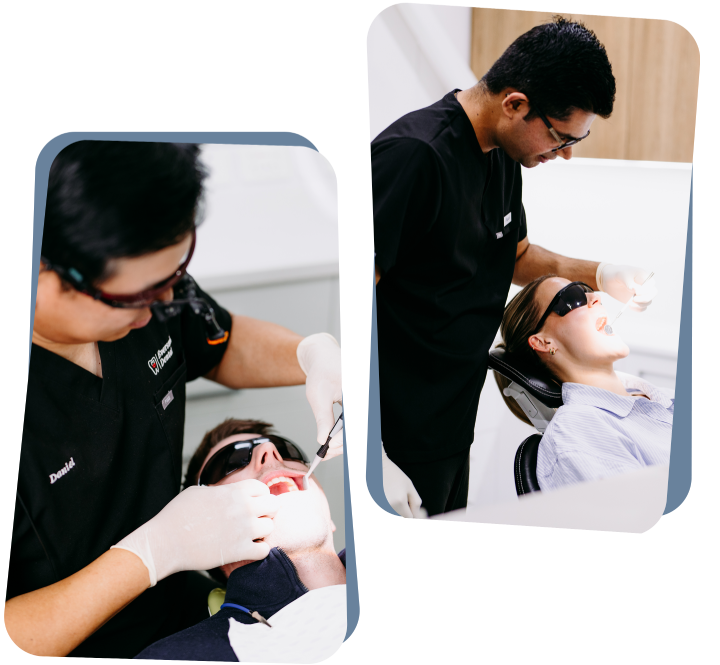
Prompt Dental Care Can Help Protect Long-Term Oral Health
Dental emergencies often happen without warning and can affect your ability to eat, speak, or sleep comfortably. Ignoring the problem may lead to further pain, infection, or long-term damage. Common causes include trauma, tooth decay, or broken restorations. Eversmile Dental provides prompt care and attention to assess and manage urgent dental issues, as well as support ongoing oral health needs.
What Is Considered a Dental Emergency?
- Severe ToothacheA severe toothache can be a sign of an underlying issue such as decay or infection. This type of discomfort shouldn’t be ignored. Early professional assessment may help manage the problem before it worsens.
- Knocked-Out ToothHold the tooth carefully by the crown, not the root. Avoid scrubbing or rinsing it under running water. Place it in milk or saliva and seek urgent care, ideally within 30 minutes.
- Facial SwellingSwelling in the face, jaw, or gums can be a sign of an underlying infection. This type of swelling may worsen rapidly. Prompt assessment can help prevent further complications and reduce discomfort.
- Broken ToothA cracked or fractured tooth can expose the inner layers, including nerves and roots. This may cause significant pain or sensitivity when eating or drinking. Prompt care can help preserve the tooth and manage discomfort.
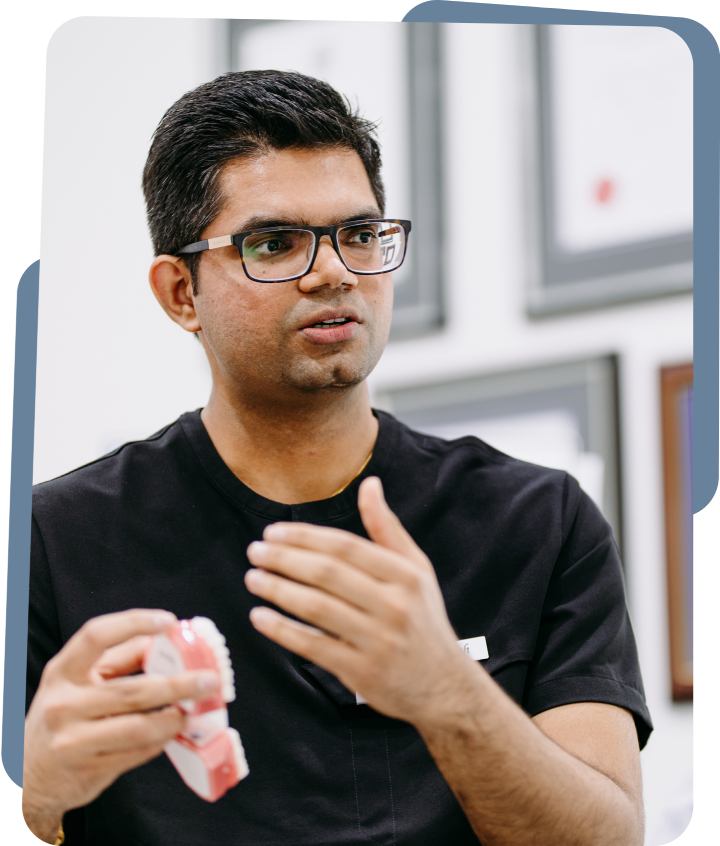
What We Can Help With During a Dental Emergency
When unexpected dental problems arise, our team is available to provide timely assessment and treatment. We manage a wide range of urgent dental issues to maintain oral function and health.
Start with a Dental Consultation in Bunbury
Are you ready to prioritise your oral health? Book a consultation to discuss your oral health needs and treatment options.

Smile Gallery – Before and After Treatment Examples
Explore real treatment outcomes in our gallery. These before-and-after photos show actual patients of Eversmile Dental, displayed with their consent. Outcomes vary between individuals, and results are not guaranteed. Images are unedited and taken under comparable conditions to reflect realistic treatment outcomes.
*These images display actual patients of our clinic. Every case is different, and treatment outcomes can vary according to individual conditions and needs.
Supporting Bunbury with Urgent Dental Care
When a dental emergency occurs, timely professional attention is important. At Eversmile Dental, we offer same-day emergency appointments whenever possible. Our focus is on providing prompt assessment and treatment planning to help manage urgent dental needs. Our team is available to assist patients with a wide range of emergency situations.
-
- Local Team Providing Emergency Dental Services
- We’re part of the Bunbury community, and when you call us in a dental emergency, we provide professional care. Whether it’s a child with a knocked-out tooth or an adult with a sudden toothache, our team will arrange to see you as promptly as possible and explain the treatment process.
-
- Providing Emergency Dental Care in Bunbury Since 2006
- For nearly two decades, we’ve helped Bunbury locals through unexpected dental problems—broken teeth, lost fillings, sudden pain, and more. Our experienced team provides assessment and treatment tailored to the needs of emergency situations.
-
- Emergency Dental Care for Every Stage of Life
- Emergencies don’t just happen to adults. Kids, teens, and older family members all face dental mishaps, too. That’s why we offer emergency care across all ages, whether it’s a sports injury, infection, or a dental problem that’s been quietly getting worse. We manage a wide range of dental emergencies.
-
- Clear Communication and Support in Dental Emergencies
- Dental emergencies can be stressful, and our role is to provide clear guidance. We explain what is happening, outline the treatment options available, and discuss likely costs and expected outcomes. Our approach is to inform patients to help them make decisions about their care.
-
- Consistent Approach to Emergency Dental Care
- Even in a dental emergency, our approach remains consistent. We focus on clear communication, professional standards, and respect for your individual needs. Our team provides treatment recommendations based on clinical assessment and discusses options transparently. You’ll receive practical information and care designed to address your situation appropriately.
-
- Equipped for Emergencies
- Our clinic is equipped with CBCT imaging, digital scanners, and modern diagnostic tools to assist with assessment and treatment planning. These technologies support our ability to provide timely, clinically appropriate attention for patients experiencing dental emergencies.
Frequently Asked Questions
We’ve answered common questions to help you manage dental emergencies. This information explains what to expect when you contact us for urgent care.
What can I do if my tooth pain is unbearable?
If your toothache becomes severe and unmanageable, it’s essential to act promptly to alleviate your discomfort. You can take immediate steps at home to ease the pain until you can see a dentist.
- Call for Emergency Dental Advice: If the pain is severe, contact an emergency dentist in Bunbury immediately. They can advise you on what to do next and may be able to arrange an urgent appointment.
- Use a Cold Compress Repeatedly: Apply a cold pack to the outside of your cheek for 15-20 minutes at a time, with breaks in between. This can temporarily reduce severe pain and help control swelling.
- Follow Pain Relief Instructions Carefully: Take pain medication as directed, being careful to stick to the proper dosage. If over-the-counter medicine isn’t enough, a pharmacist can advise if stronger options are suitable until you see a dentist.
- Rest and Elevate Your Head: Rest with your head slightly elevated to reduce pressure and ease the throbbing sensation in your tooth. Lying flat can increase blood flow to the area, which may temporarily worsen pain and discomfort.
- Check for Signs of Infection: Look for swelling, fever, or a bad taste in your mouth. These symptoms may indicate an infection that requires urgent dental treatment.
If you’re experiencing significant pain, it’s important to seek professional dental care promptly. A dentist can assess and manage the underlying issue.
How do I relieve tooth pain until I see a dentist?
If you’re dealing with tooth pain and can’t see a dentist immediately, there are ways to manage it. Here are the steps you can try at home to ease discomfort until you receive professional dental care.
- Keep the Area Clean: Gently brush and floss around the sore tooth to remove any trapped food. Avoid harsh scrubbing to prevent further aggravation of the area.
- Rinse with Warm Salt Water: Mix a teaspoon of salt in a glass of warm water and gently swish it around your mouth. This helps clean the area and can reduce swelling or irritation.
- Apply a Cold Compress: Place a cold pack of frozen peas wrapped in a cloth against your cheek near the affected area. This can help provide temporary relief from tooth pain and reduce swelling until you see a dentist.
- Over-the-Counter Pain Relief: Use over-the-counter pain relievers as directed to help manage your toothache. If you’re unsure which option is suitable, ask a pharmacist for professional advice before taking any medication.
- Avoid Trigger Foods: Steer clear of very cold, hot, sugary, or acidic foods and drinks, as these can exacerbate tooth pain.
These steps can provide temporary relief, but they do not replace professional care. It’s essential to see a dentist as soon as possible to address the cause of your toothache.
Is a knocked-out tooth a dental emergency?
A knocked-out tooth is a serious dental emergency that requires prompt attention and care. If you experience this, be aware of these points and know what to do next.
- Yes, a Knocked-Out Tooth is an Emergency: A knocked-out tooth is a dental emergency because prompt treatment increases the chances of preserving the tooth. The sooner you seek professional care, the higher the chance of successful reattachment and recovery.
- Time Matters — Act Quickly: Ideally, a dentist should see you within 30 minutes of the tooth being knocked out. Acting quickly increases the chances of successfully reattaching the tooth.
- Handle the Tooth Carefully: Pick up the tooth by the crown (the white chewing part), not the root. Touching the root can damage important cells that help the tooth reattach.
- Gently Rinse — Don’t Scrub: If the tooth is dirty, rinse it gently with saline solution or milk. Avoid using soap or scrubbing the tooth, as this can damage its delicate surface.
- Try to Reinsert the Tooth (If Possible): If possible, place the tooth back into its socket with the tooth facing the proper way. Bite down softly on a clean cloth to hold it in place.
- Store the Tooth if Reinsertion Fails: If you can’t reinsert the tooth, place it in milk or saline to keep it moist and protected. If that’s not possible, gently place the tooth inside your cheek only if conditions allow you to do so. Dry storage can damage the tooth and reduce the chance of preserving it.
- Seek Emergency Dental Care Immediately: Contact an emergency dentist right away. Explain that you have had a tooth knocked out so they can prioritise your care.
If a tooth is knocked out, seeking dental care promptly may increase the chances of saving it. However, results can differ depending on the nature of the injury and how soon treatment is received.
Is a lost filling or crown an emergency?
Losing a filling or crown can feel concerning, but it’s not always an emergency that needs immediate treatment. The urgency depends on your symptoms and how soon you can see a dentist for a proper assessment. If this occurs, it’s essential to know what to do to manage the problem promptly.
- It may not be an immediate emergency: A lost filling or crown is not usually life-threatening, but it should not be ignored for too long. Prompt dental care helps prevent further damage and protects the exposed tooth from decay or breakage.
- Exposed tooth surfaces can become sensitive or painful: When a crown or filling falls out, it can expose sensitive parts of your tooth, causing discomfort. This may lead to sensitivity to hot or cold foods and sharp edges that irritate your tongue or cheek.
- Delaying treatment can lead to more significant problems: If not managed, an unprotected tooth can develop decay, infection, or further structural damage. This may lead to more complex treatment and higher costs over time.
- See a dentist promptly, especially if you’re experiencing pain: If you’re experiencing pain, sensitivity, or difficulty eating, contact a dentist as soon as possible for advice. Urgent care may be needed to prevent further damage, even if it’s not an after-hours dental emergency.
- Temporary at-home care can help protect your tooth: Gently clean the area to keep it free from food debris and reduce irritation. Use temporary filling material or dental wax from a pharmacy to cover sharp edges and protect the exposed tooth.
A lost filling or crown is usually not an after-hours emergency; however, it still requires timely dental care. Seeing a dentist promptly helps prevent pain and reduces the risk of infection. Quick action helps protect your tooth and keeps treatment simple.
Should I go to the hospital if my toothache is unbearable?
If your toothache is unbearable and significantly affects your daily activities, you should consult a dentist as soon as possible. Hospitals are not typically equipped to perform dental procedures. However, if swelling affects breathing or spreads to the neck, seek medical attention immediately. Severe infections can become life-threatening and need urgent medical attention.
For most toothaches, hospitals typically offer only temporary pain relief without addressing the underlying dental issue. Visiting a dentist allows for a proper diagnosis and treatment of the underlying cause, not just the symptoms. If you cannot reach a dentist quickly, the hospital can provide temporary relief from severe pain. Always prioritise your health and seek emergency care if symptoms worsen rapidly.
How much does emergency dental care cost?
If you’re facing a dental emergency, it’s natural to wonder about the cost of treatment. While costs can vary, several key factors influence the final fee for emergency dental care. Here’s what you need to know:
- Type of Dental Emergency: The cost depends on the type of dental emergency that requires urgent attention. Common emergencies, such as a toothache or a dental infection, may require different treatments, each with its associated fee. The more complex the issue, the higher the potential cost.
- Treatment Required: Emergency dental care may involve a temporary option to relieve pain and protect the affected tooth or area. More complex emergencies may require treatments such as fillings, tooth extractions, or root canal therapy, depending on the specific situation. The type and complexity of the treatment will significantly influence the total cost.
- Location of the Dental Clinic: The location of the clinic can affect pricing. Clinics in regional areas may have different operating expenses compared to those in larger cities. These differences can affect the overall cost of emergency dental services.
- Dentist’s Experience: The qualifications and experience of the attending dentist can also influence the cost. Dentists with advanced training in managing complex dental emergencies may charge accordingly for their services.
- Diagnostic Procedures: In some cases, additional tests, such as digital imaging (CBCT) scans, may be necessary to accurately assess the problem. These diagnostic steps add to the overall cost but are essential for providing the right treatment.
- Follow-up Care: Sometimes, emergency dental treatment is the first step in a longer treatment plan. Follow-up visits or further procedures may be required, which can influence the overall financial commitment.
Emergency dental care costs vary depending on individual needs and the specific treatment required for your situation. Before proceeding with any treatment, dental clinics are required to provide clear information about recommended procedures and their associated fees. This helps patients understand their options and choose the care that suits their needs.
Are dental emergencies covered by health funds?
Most health funds offer some level of cover for dental emergencies, but this depends on your specific policy. Ancillary policies often include emergency treatments like fillings, extractions, or temporary restorations. However, not all health funds cover every emergency procedure, especially complex or major treatments. It’s important to check your policy or contact your health fund to confirm what’s included.
Keep in mind that there may be waiting periods for how much your health fund will cover for emergency care. Some patients might still have out-of-pocket expenses, even with a private health fund. Patients are entitled to receive a clear explanation of expected costs and any applicable health fund benefits before treatment. This helps individuals understand their dental care options and make informed choices.
Can the ER pull an infected tooth?
Hospital emergency rooms do not usually remove infected teeth because they are not equipped for dental extractions. They can provide temporary relief by prescribing antibiotics and pain medication to manage infection and discomfort. However, a dentist is the right professional to extract an infected tooth when needed. Visiting a dental clinic promptly is important to prevent the infection from worsening.
In severe cases where swelling affects breathing or causes facial cellulitis, the hospital may offer urgent care before dental treatment. Their role is to stabilise serious infections, not provide dental options like tooth extractions. After hospital treatment, patients are referred to a dentist for proper tooth removal. Prompt dental care remains essential to address the infection and protect your oral health.
How do I know if my toothache is life-threatening?
A toothache is often a warning sign that something isn’t right, but not every toothache is life-threatening. However, certain symptoms mean you should seek urgent dental or medical care immediately. Here’s how to tell if your toothache could be serious:
- Severe, Spreading Swelling: Swelling that spreads to your face, neck, or eyes may be a sign of a serious dental infection. This infection could impact your breathing or spread to other areas, requiring urgent medical attention. This condition requires urgent medical attention.
- Fever and Feeling Unwell: A toothache accompanied by fever, chills, or general weakness may suggest the infection has spread beyond the tooth. Feeling “off” or sick with dental pain is not normal and needs urgent assessment.
- Difficulty Breathing or Swallowing: If your toothache makes it hard to breathe, swallow, or open your mouth, seek urgent medical attention. This may indicate a serious dental infection that could spread to other areas if not managed. Such symptoms may represent a serious medical issue and should be assessed urgently by a healthcare provider.
- Intense, Unrelenting Pain: Severe tooth pain that doesn’t improve with over-the-counter medication may indicate a serious dental issue. If the pain worsens or disrupts your sleep, seek urgent dental assessment to prevent further complications.
- Uncontrolled Bleeding from the Mouth: Bleeding that continues after a dental injury or procedure is a serious warning sign. If applying pressure fails to control the bleeding, seek urgent medical or dental care.
- Signs of Confusion or Rapid Heartbeat: Although rare, a severe dental infection can cause systemic symptoms, such as confusion, dizziness, or a racing heart. These symptoms should never be ignored and need emergency care.
If you experience these symptoms with a toothache, seek prompt professional advice. Some dental infections can become serious if not managed early. If you’re unsure whether your symptoms require urgent attention, contact a dental clinic or call emergency services for advice.
Book Your Appointment Online or Call Our Bunbury Dental Clinic
Book an appointment with our dentist in Bunbury to discuss your oral health needs. We provide tailored dental treatments and clear information to support informed decisions about your dental care.
